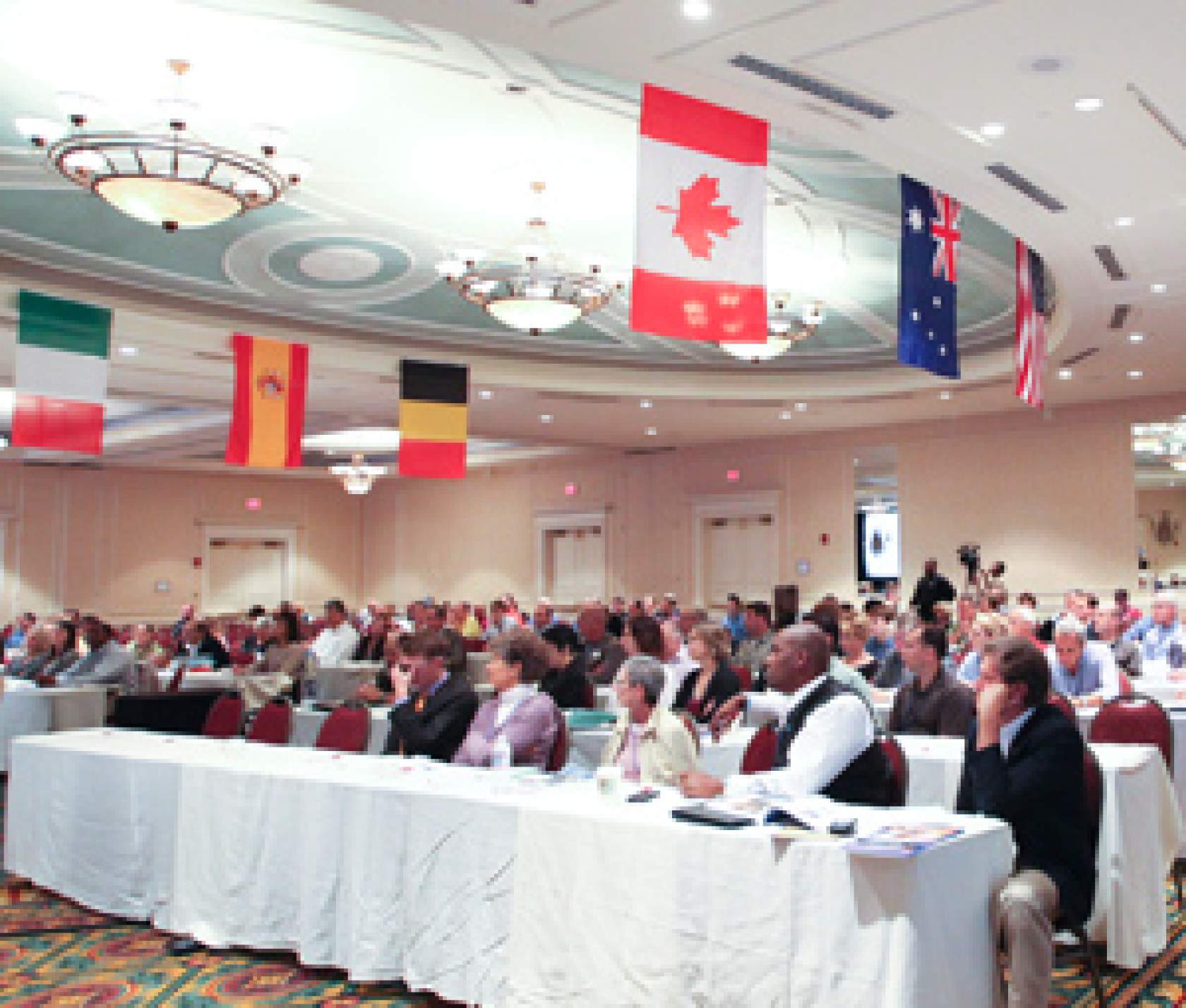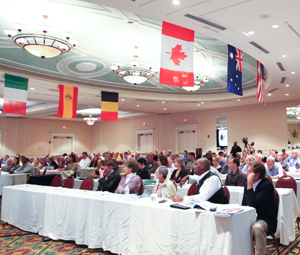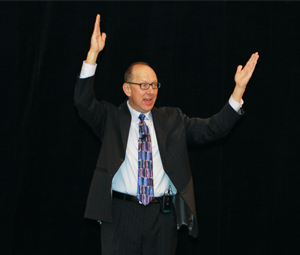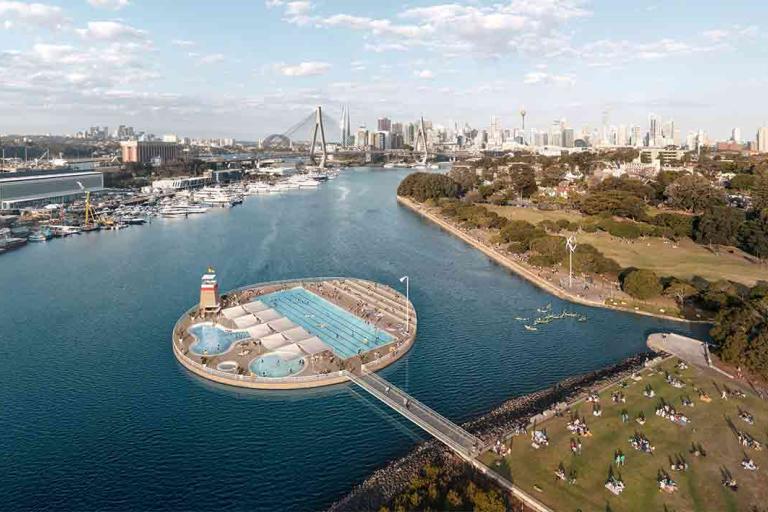Australia to host World Aquatic Health Conference


For the first time in its history, the World Aquatic Health Conference (WAHC) will be held outside the USA, as part of SPLASH! on the Gold Coast this July 17 and 18.
In 2007, SPLASH! hosted the Disinfection By-Products Forum, which included “virtual presentations” from that year’s conference. However, this will be a full face-to-face two-day conference featuring some of the heavy-hitters in aquatic water research.
These include experts brought in from the USA such as:
• Michele Hlavsa of the Centres for Disease Control (CDC) who will discuss how to understand and prevent recreational water illness; and also describe the Model Aquatic Health Code;
• Dr Chip Blatchley, who will discuss disinfection by-products in swimming pools, how they are formed and how to prevent them;
• Dr Alex Antoniou who will show how to develop risk management plans associated with recreational water-borne illnesses.
As well there will be distinguished Australian presenters including:
• Llew Withers, who will discuss developing legislation and a code of practice for aquatic facilities in Western Australia;
• Rachael Poon, a microbiologist with the Victorian Department of Health, who will look at the results of an investigation into the 2012/2013 outbreak of Cryptosporidiosis in Victorian aquatic facilities; and
• Rob Stowell of Learning Australia, who will discuss how we can improve quality and safety in the swimming pool industry through national qualifications.
The WAHC Down Under is sponsored by Australian Innovative Systems (AIS) and co-sponsored by the Swimming Pool Retail Association Australia (SPRAA) and BioLab.
Why should I care about science?
CEO of the National Swimming Pool Foundation, Dr Thomas M. Lachocki, asks why the industry should care about scientific research and outlines some of the reasons why the WAHC is coming to Australia at this time.

The World Aquatic Health Conference brings science to service technicians, builders, retailers, government regulators, educators and manufacturers.
Most people believe that our eyes, skin and noses get irritated from noxious inorganic chloramines that result from ammonia getting into the water and reacting with free chlorine. Most pools are built and updated with single-speed pumps. Most pools are constructed with piping diameter similar to what we used 20 years ago. Many people believe if the water is clear, it is fine. New pool buyers often hear about how vinyl, gunite or fiberglass is better, or why it is better to use sand, DE or a cartridge filter.
It turns out that organic chloramines from contaminants like urea, amino acids and proteins break down over weeks to produce ammonia. The ammonia in turn reacts with free chlorine to produce the noxious inorganic chloramines. It is still rare that pools have variable speed drives and larger diameter plumbing; even though the world is shouting that we need to be more energy efficient – just a better pump/motor and wider diameter plumbing can cut energy consumption by more than half. Industries that waste precious natural resources risk society turning away from them. Because the water is crystal clear does not mean the water is free of disease-causing microorganisms. Clear water may also be dissolving our customers’ heaters or pool surfaces. Humans don’t care about filter media types or surfaces. They are like us. They care about their family and their health.
In just these few examples, it is clear that our industry’s success is defined by chemistry (chloramines), engineering (hydraulics and energy consumption), microbiology (control of germs), and psychology (human values). Of course, business (economics), physiology (healthy exercise), maths (calculating dosages, volume, turnover, total dynamic head, etc.), and even therapy also apply. Why should we care about science? The pool, spa, and aquatics field is all based on science!
Ironically, until 10 years ago, our industry did not have a scientific conference. That is why in 2004, the US non-profit National Swimming Pool Foundation (NSPF) launched the World Aquatic Health Conference (WAHC). The WAHC’s objective is to spotlight issues that help keep pools safer and keep them open. In reality, issues properly viewed are opportunities. The WAHC is also a key means to disseminate the most recent research and learning for our field. It has become a forum for industry, government and academic leaders who are interested in the diverse aspects of this field. The first 10 conferences were held in North America; there was one small symposium a few years ago in Australia. The seminars from 2013, 2012, and 2009-2011 were video recorded and are available for free around the world.
Clearly, science is important to our field. The better we understand issues, the better we can apply chemistry, microbiology, engineering and psychology to solve problems and help more people live healthier lives. If we can help more people become aquatic-active, families and neighbours will be healthier. As a result, the pool, spa and aquatics industry will grow, helping us better support our families.
Why Australia? Why now?
There are unique and exciting national policies and scientific advances occurring in Australia and the US that warrant greater exposure. Both Australia and the US are on the verge of implementing national standards and practices for professionals in the aquatics field. The WAHC’s focus is to spotlight important matters and to help bring industry, government and academia together on big matters that impact us all. Now is the perfect time! Australia is the right place!
Australian pool and spa industry members have taken a tremendous leadership step by working with the government Industry Skills Council to establish a Cert III and Cert IV in Swimming Pool and Spa Service qualification. It is exciting to see industry leaders, government and educational institutions working together to raise professionalism in our field.
In the US, the Centers for Disease Control and Prevention (CDC) showed similar leadership by coordinating the development of the Model Aquatic Health Code (MAHC), scheduled for full launch in July 2014. The MAHC is a science-based, public domain (free) code planned to help states adopt consistent operation, training and design requirements that will help keep pools safer. Of course, the science described in the code annex is applicable around the world. The code language has been influenced by outbreak and drowning investigations that have been conducted and published for the past two decades. Like Australia, the MAHC has involved industry, government and academia. The development of the MAHC in many ways follows the same path used to develop a national Food Code that has helped standardise food safety around the world.
The 2014 World Aquatic Health Conference “Down Under” on July 17-18, 2014 will be “Where Science meets Policy and Industry.” The seminar schedule includes two of the leading scientists from the US, including Michelle Hlavsa from the CDC, and several key health officials and educators from Australia. The Americans will gain insight on how Australia is elevating the industry and evolving and standardising codes.
Similarly, I believe, Australians will gain insight on lessons learned from outbreaks and how the US is moving to a national code. In addition, Dr Chip Blatchley will teach the latest on understanding the formation of chloramines and disinfection by-products and how we minimise them to help make water safer and healthier.
The WAHC Down Under will complement the World Aquatic Health Conference that will be held in Portland, Oregon in the US, October 8-10, 2014.
Keep informed with the free SPLASH! newsletter or follow SPLASH! on social media:Twitter, Facebook, LinkedIn and Google+.




